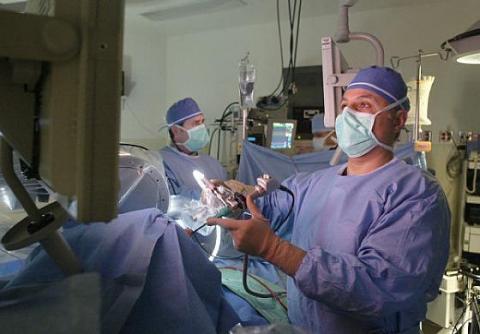LOS ANGELES--(BUSINESS WIRE)--Internationally renowned brain surgeon Hrayr Shahinian, M.D., a pioneer in minimally invasive surgery, and NASA’s Jet Propulsion Laboratory (JPL) in Pasadena have introduced the next generation of high-tech surgical instruments to remove tumors and treat other brain abnormalities.
MARVEL (Multi Angle Rear Viewing Endoscopic tooL) captures and displays 3D high-definition images of the brain and enables surgeons to perceive depth and “peek around corners” that, until now, have been off limits. These images allow surgeons to perform procedures quicker, safer and more precisely resulting in better outcomes and lower costs for both hospitals and patients. For JPL, the technology will improve future versions of the Mars Rover planetary explorer.
This advancement marks the latest development in a move away from the more traditional open craniotomy. That relatively dated procedure, favored by neurosurgeons, involves removing large sections of skull to reach problem areas. It’s costlier than endoscopy and results in longer hospital stays and ongoing rehabilitation. Currently, more than 98% of all brain surgery in the U.S. is performed using the open craniotomy.
Shahinian of the Skull Base Institute in LA is one of the pioneers of minimally invasive surgery. He started his work nearly 2 decades ago and has since performed more than 6,000 surgeries of this type to remove pituitary and pineal tumors, meningiomas and acoustic neuromas as well as treat other conditions like hemifacial spasm and trigeminal neuralgia.
He has published dozens of peer-reviewed papers and a textbook on the subject and is considered to be on the vanguard of minimally invasive brain surgery. The validity of this approach has stood the test of time and now many top medical centers have adopted Shahinian’s techniques including the Mayo Clinic, UCLA, USC, Johns Hopkins and others.
“This technology defines the future of our work in the operating room and on NASA missions,” said Shahinian. “The scientists at JPL and I are proud of our work which shows how the spirit of collaboration between two very different disciplines can benefit society as a whole.”
For more information, call the Skull Base Institute at (310) 691-8888 or visit www.skullbaseinstitute.com.




